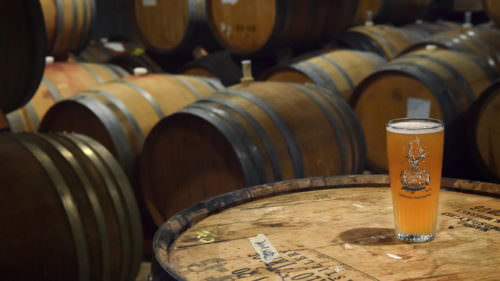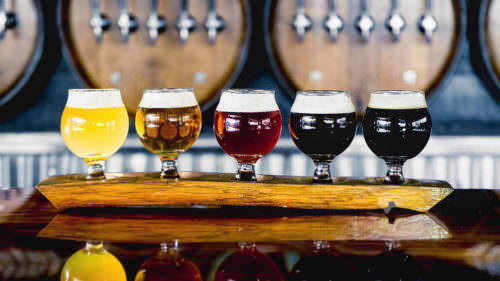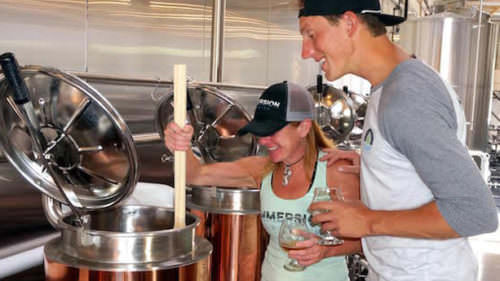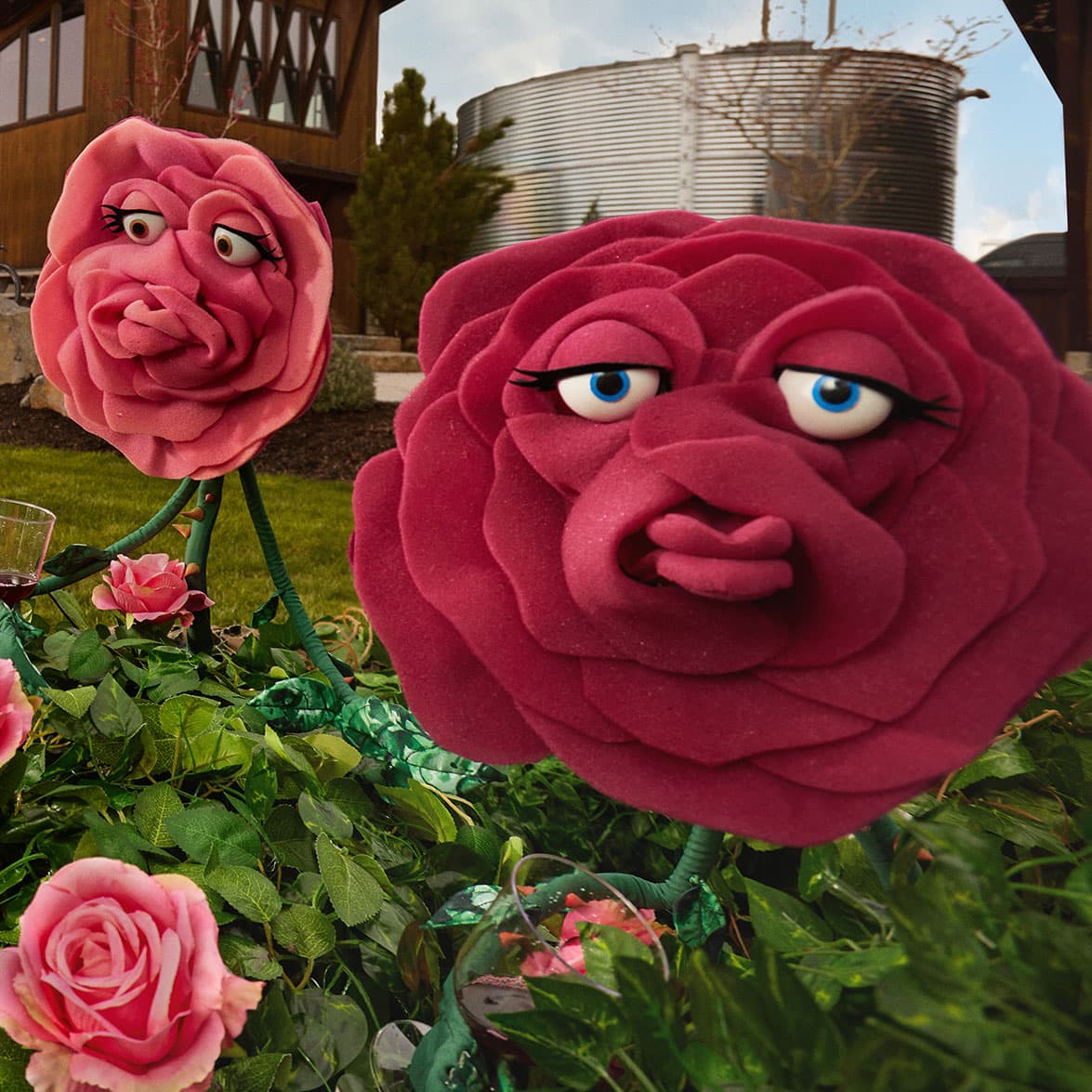Oregon is world-famous for craft beer. It’s also frequently ranked among the greenest states in the nation. So it’s no surprise that we’re at the forefront of what’s become known as the sustainable-brewing movement.
In fact, many of the state’s 250-plus craft-beer operations have taken innovative steps toward sustainability, from producing organic beers and sourcing ingredients from local farms to using renewable energy, recycling spent waste and partnering with environmental organizations on a wide range of green initiatives. And more than 60 breweries, farms and other beer-industry businesses make up the Oregon Brewshed Alliance, an eco-minded coalition that strives to safeguard the purity of the state’s most precious contribution to beermaking: its pristine water.
What does all of that that mean for beer enthusiasts? If you’re a fan of craft beer and you also love experiencing the Oregon outdoors, supporting eco-friendly brewing is only natural. But there’s one more reason to encourage green brewing: better-tasting beer. Or, as the Oregon Brewshed Alliance puts it: “Great beer begins with clean water.”
Ready to taste it for yourself? Here’s a region-by-region rundown of some of Oregon’s most prolific sustainable brewers, from bike-focused brewpubs in Portland to solar-powered operations all around the state.
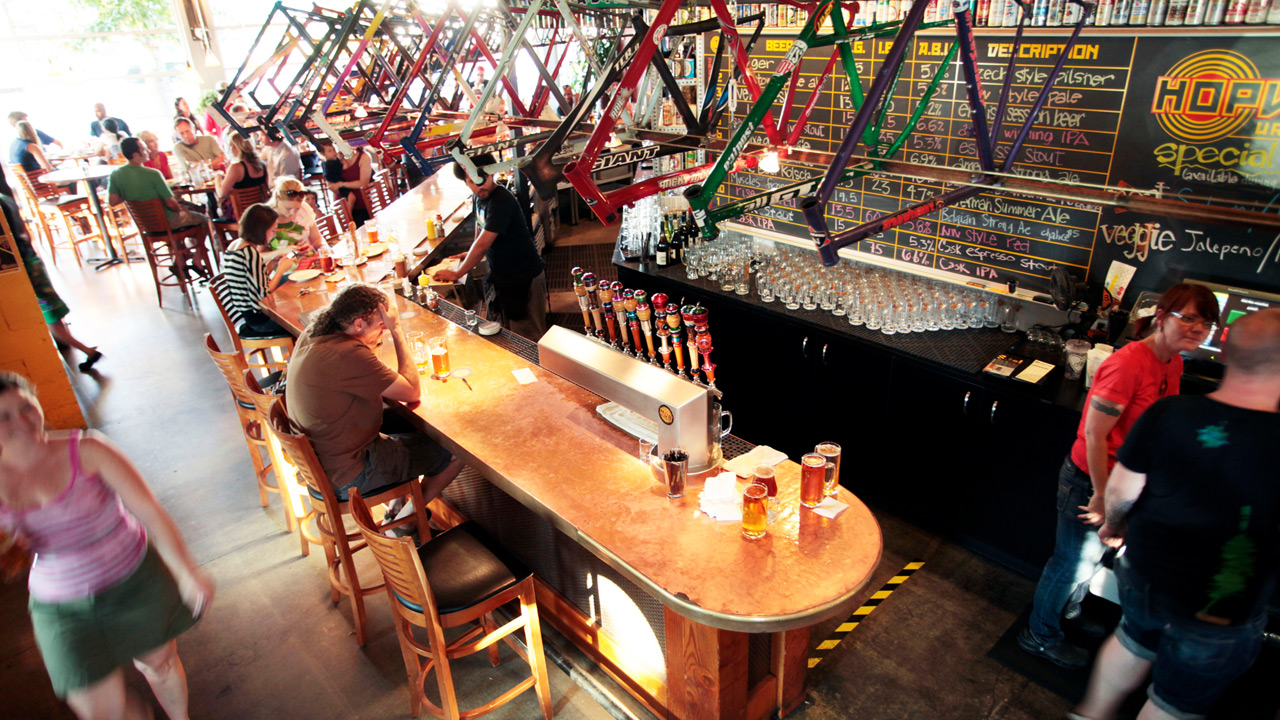
Portland Region
Hopworks Urban Brewery and Hopworks BikeBar proudly refer to their operations as eco-brewpubs. In addition to using sustainable and often organic ingredients, the breweries are constructed from eco-friendly materials, are renewably powered and use recyclable packaging. At BikeBar, you can pedal off those beer calories on the pub’s plug-out bicycles while generating power for their Net Zero energy building. Try the Organic Wave Train Vienna-style amber or the Organic Survival Stout.
Widmer Brothers, a pioneer of the Pacific Northwest’s craft-brewing movement, is also one of the city’s leading stewards of environmental consciousness. The company partners with the Energy Trust of Oregon to reduce its carbon footprint, and in 2017 it began an initiative to reuse the CO2 it generates during the brewing process. Widmer also works hard to reduce water consumption and is a founding member of the Oregon Brewshed Alliance. The “House That Hefe Built” offers fascinating daily brewery tours that include beer tastings, and you can find Widmer’s celebrated hefeweizen and robust Deadlift Imperial IPA at countless restaurants and bars throughout the state.
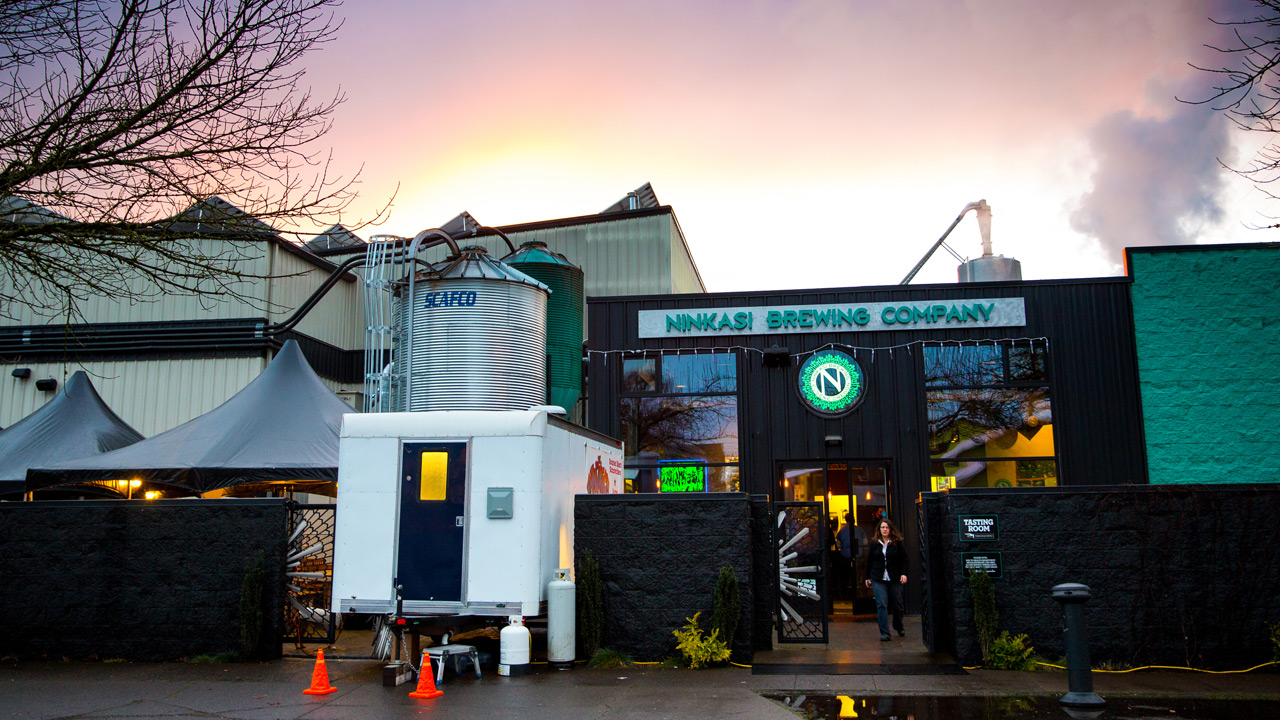
Willamette Valley
In Eugene, Ninkasi Brewing Company shows its commitment to sustainability through solar power, carbon offsets, water-conservation systems and thoughtful materials sourcing and recycling. It also has a beautiful tasting room with a lovely, expansive patio. Although its Total Domination IPA is a justifiably dominant force in Oregon beer circles, don’t miss Ninkasi’s other superb brews, including the Prismatic Juicy IPA and refreshing Helles Belles Helles Lager.
In the Willamette Valley’s other famous college town, Corvallis, Block 15 Brewing specializes in boldly flavored creations, from bourbon-barrel-aged beers to rotating wheat ales featuring local seasonal fruits to an unfiltered pilsner made with Oregon hops. The brewery sources most of its fruit from within a 4-mile radius and favors organic materials whenever possible. They reduce their environmental impact by recycling waste, using a tank to recapture excess water and purchasing Bonneville Environmental Foundation Water Restoration Certificates. Block 15 employs the same practices at its three restaurants and taprooms.
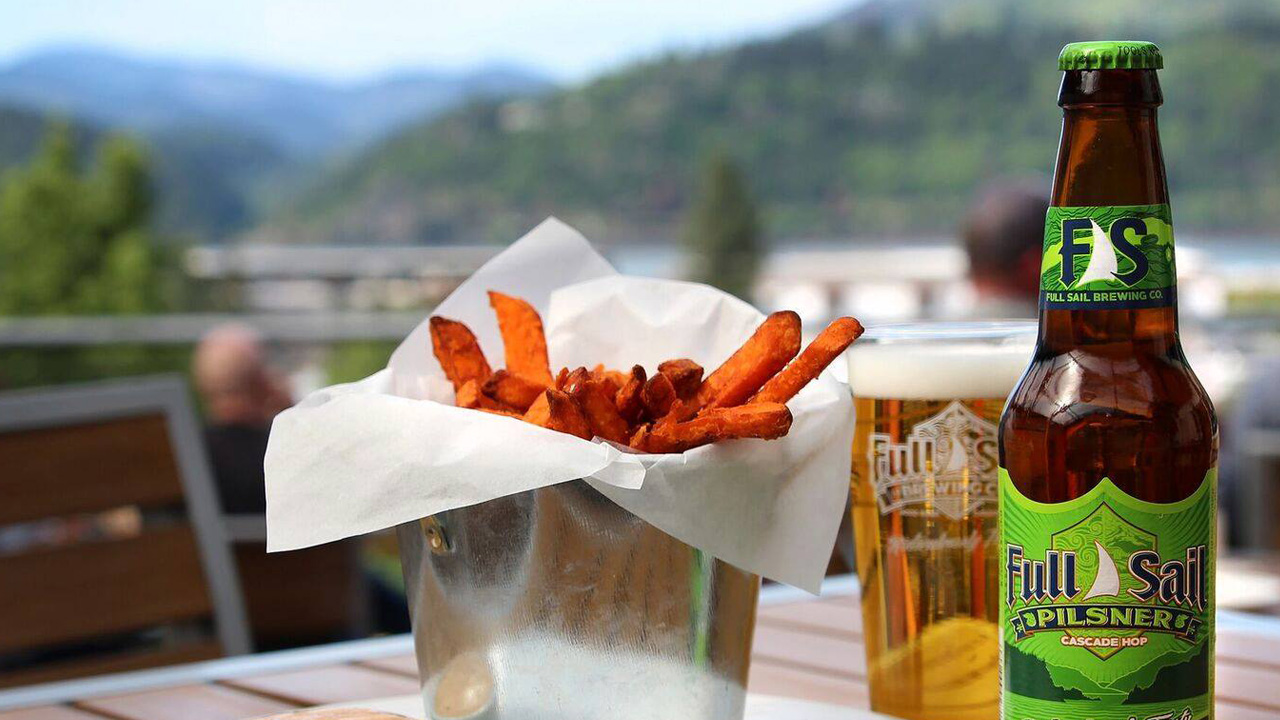
Columbia River Gorge
Full Sail Brewing Company, which overlooks the mighty Columbia River, has energy-conservation systems in place that result in the use of just 3 gallons of water for every gallon of beer produced (compared with 6 to 8 gallons of water at typical breweries). They buy 140 blocks of wind power per month and also purchase yeast and hops from the Hood River Valley. The unfiltered Session EZ IPA is perfect for summer, and the slightly spicy Amber Ale is classic.
Logsdon Organic Farmhouse Ales crafts Belgian-style ales — some of them organic — using Northwest-grown barley malt, whole-cone hops and fruit from their Hood River farm. Try the oak-aged Bretta (an Oregon Beer Awards 2017 gold winner) and the Kili Wit, an unfiltered white beer.
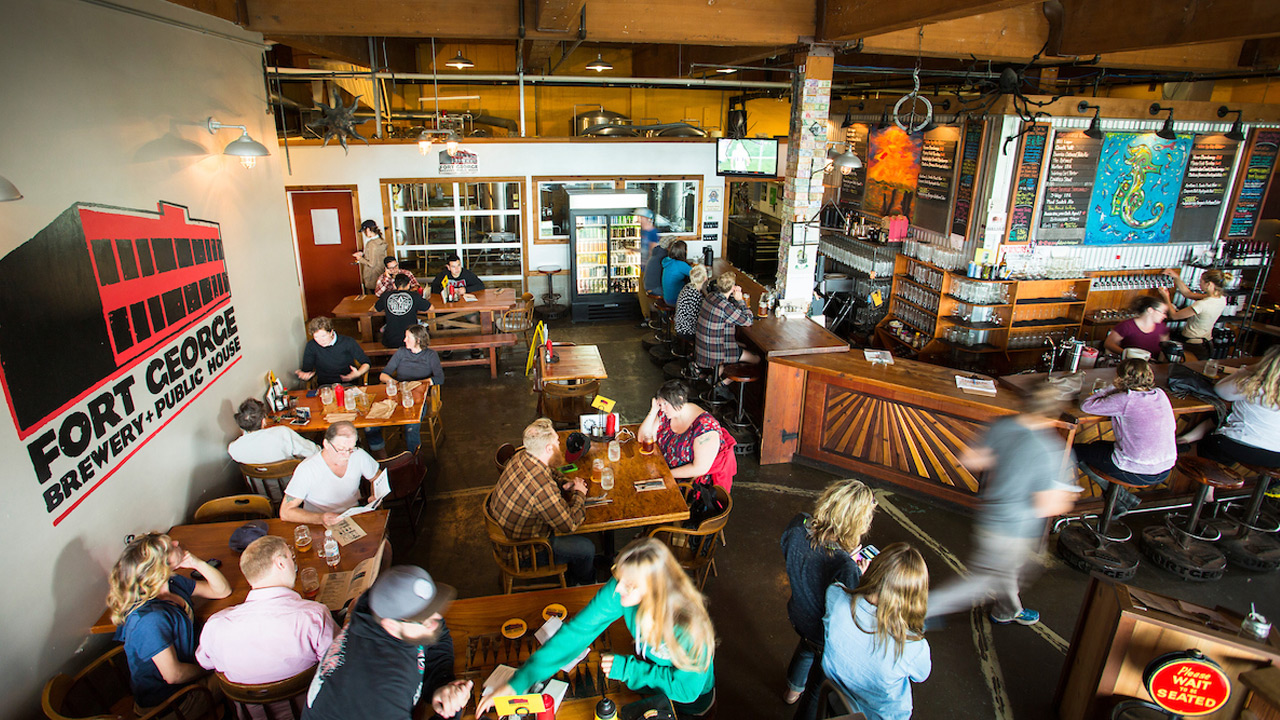
Oregon Coast
Fort George Brewery in Astoria helped to spark the craft-beer industry’s now full-throttle canned-beer revolution and continues to be a leader in this movement. The popular beer maker’s aluminum goes right back into the production stream upon recycling, and many beer connoisseurs maintain that cans provide a fresher-tasting beer than glass bottles, which allow in harmful light. Tuck a few cans of Cavatica Stout or Optimist IPA in your pack for an afternoon at the beach.
Note: Oregon’s North Coast is very popular in the summer. Skip the driving with a car-free trip to Astoria or instead find yourself at one of the breweries on the Central Coast or the Southern Coast.
Set in a midcentury former bank building and transformed into a brewery and restaurant using reclaimed Doug fir timber and furniture fashioned from old wine barrels, Yachats Brewing specializes not only in innovative beers but also in probiotic beverages such as kombucha and kefir soda. The company uses biodiesel fuel to power its seven-barrel brewhouse and vehicles, passive solar and thermal mass to heat the building, and a wind-turbine generator to augment electricity. Even the spent brewing grain ends up contributing to Yachats Brewing’s strong commitment to the environment — it’s turned into feed for livestock at a local farm.
In the southern logging and port city of Coos Bay, 7 Devils Brewing Co. honors its commitment to sustainability through sourcing as much as possible from the immediate area, collecting rainwater through a rooftop catchment system and using 40 solar panels. This small but hugely popular operation opened in 2013 and distributes only in the local area, but you can sample the delicious pub fare and acclaimed beers in the brewery’s friendly downtown brewpub. Consider the rich Blacklock Oat Porter and the bright and resinous Chinook Redd. Oh, that straw that came with your water? It’s made from biodegradable paper.
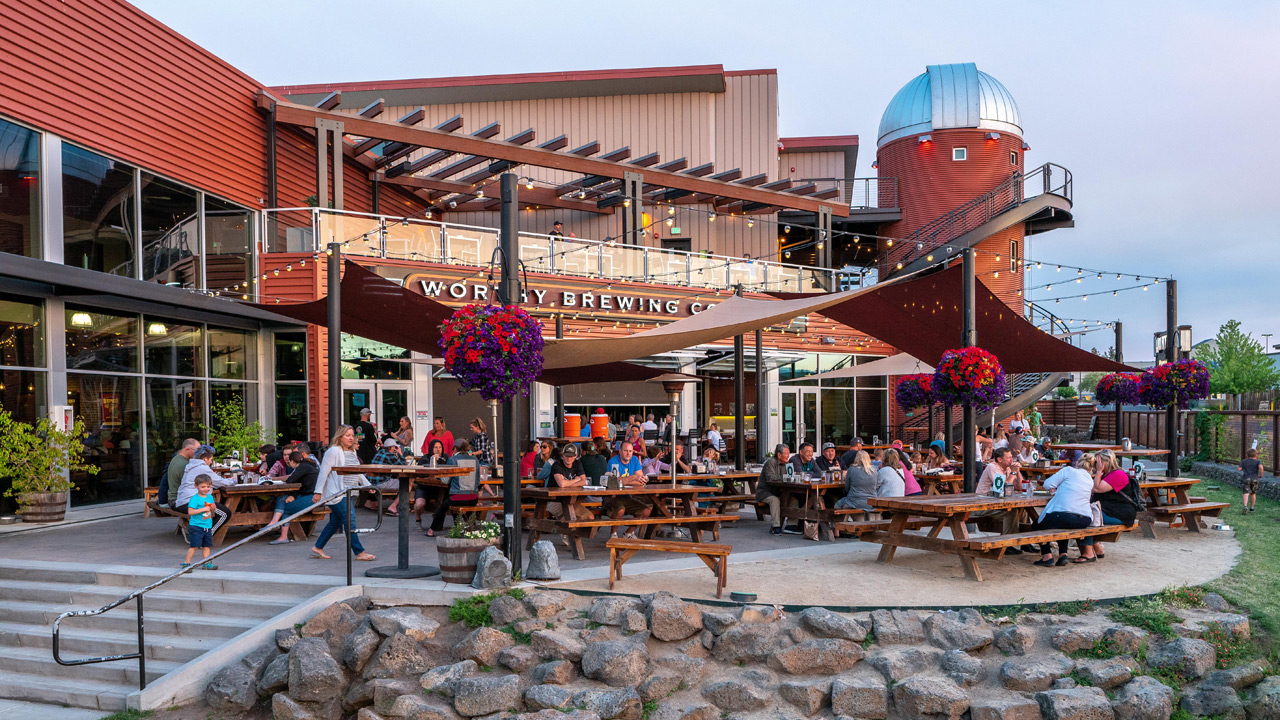
Central Oregon
Bend’s Deschutes Brewery was the first Oregon beer maker to implement a Global Reporting Initiative (GRI) approach, which tracks their economic, environmental and social impact. The nationally renowned beer maker with brewpubs in Bend and Portland continues to rank among the most eco-conscious brewing outfits in the industry, working with Deschutes River Conservancy to restore that river’s pristine waters, recycling 100 percent of spent grains and beer wastewater, and using as much locally grown grains, hops, and produce as possible both to brew beer and to create the excellent food served in its pubs.
Bend has a couple of other beer makers throwing their weight behind sustainability. Worthy Brewing Company does so by using solar power, solar thermal water panels, Salmon-Safe hops and vast quantities of composted materials. The company also operates the Worthy Garden Club, an eco-friendly greenhouse and hopyard that’s home to the Hopservatory, whose aim is to increase scientific literacy through astronomy and night-sky-viewing programs. When at the Bend brewpub, don’t miss the Lights Out Stout and Merry Dankster Hazy IPA.
Another great local beer maker, GoodLife Brewing Company has joined forces with the Deschutes Collaborative Forest Project to produce seasonal Sustainable Session Series ales; a portion of proceeds benefits local environmental charities. The company also sends its spent grains and hops to a cattle ranch in Tumalo and cans its beer with 98 percent recycled aluminum.
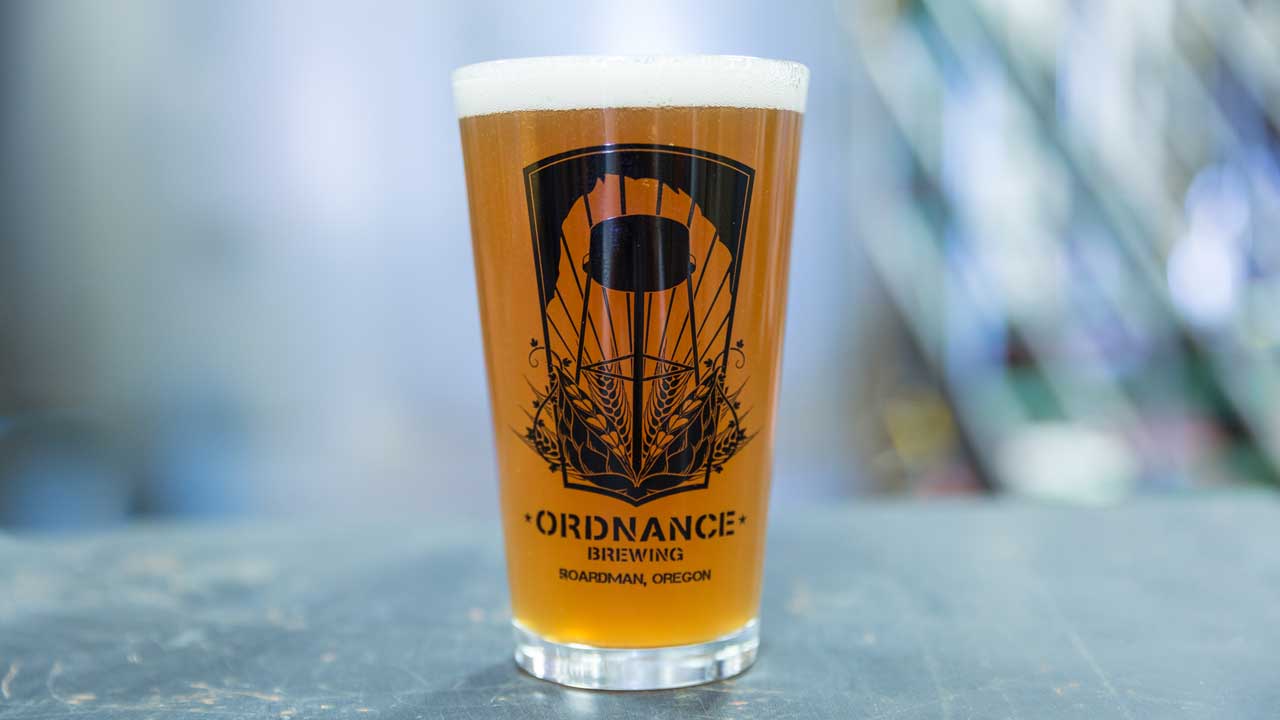
Southern Oregon
Ashland’s Calera Brewing has always been dedicated to being green, reusing and recycling everything it can. Its tap handles are made from scrap ash hardwood from a local paddle shop in Talent. All of the brewery’s spent grain, hops, yeast and filter sheets are composted to make rich soil. Their used specialty grain bags go to employees for garbage bags, and are used to package the soil. The culture of sustainability is also built into the brewery design and restaurant practices: cooking oil is recycled into biofuel; food scraps are composted; the menu is sourced with local and organic ingredients whenever possible, and more.
Just south of Klamath Falls, Skyline Brewing Company is located on a converted 100-year-old milking parlor on a farm that produces mostly certified alfalfa, wheat, barley, purebred bulls and commercial cattle. The brewery is now a central piece of the farm operation; a way to utilize and reuse what is produced on the farm. For example some of the barley grown on the farm is used in beers; the cows eat the spent grain; and the used hops and yeast become fertilizer. Try the Hustlin’ Ale, a collaboration between the brewery and nearby Oregon Tech, with a portion of sales supporting the university’s athletic programs.
